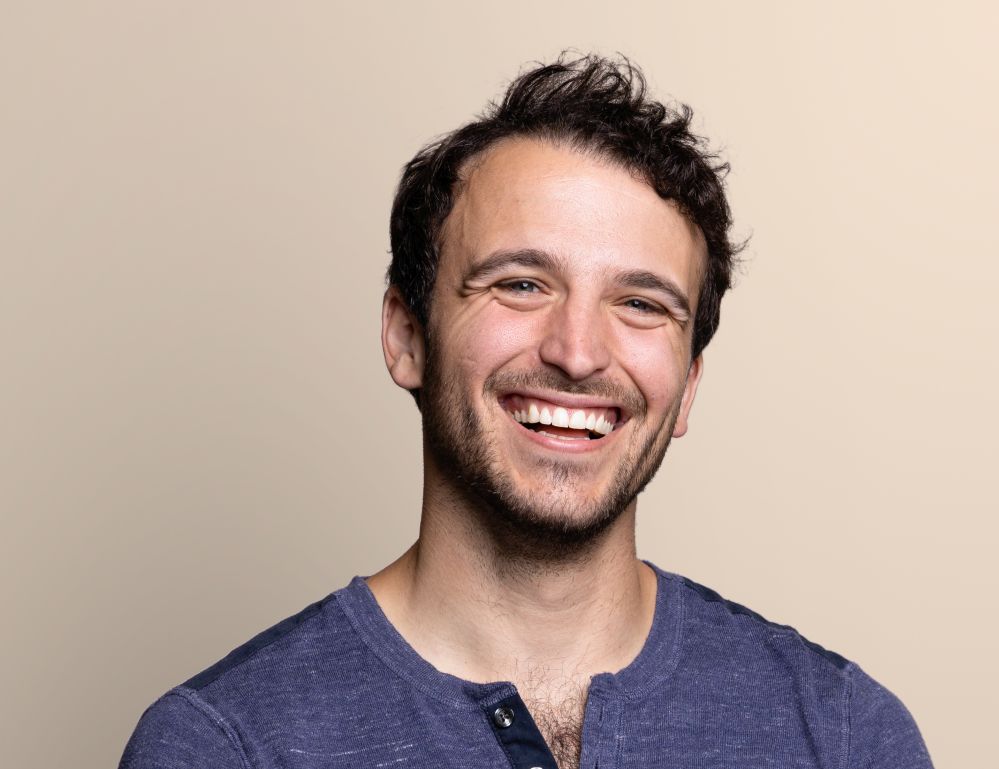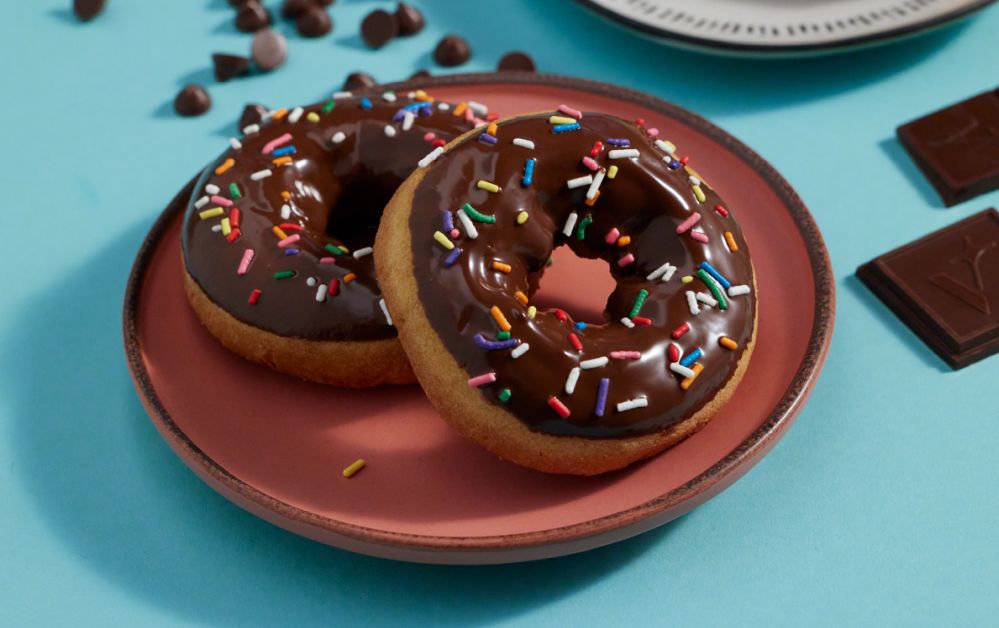Looking at cocoa prices over the last few years, there’s a fair bit of volatility, says Voyage Foods founder Adam Maxwell. But if you normalize the curve, he says, they’re just going in one direction (spoiler alert: it’s up). And in the last year, we’re talking up in the stratosphere.
As with any commodity, he says, multiple factors are at play, from droughts and harsh weather in West Africa, exacerbated by El Niño, to pests and disease; illegal mining and land degradation; aging trees; and investor speculation.
Throw in some ethical and environmental challenges—cacao production is associated with deforestation, a high water footprint, and child labor—and it’s not hard to see why all this has inspired a lot of soul-searching (will a bar of chocolate become an unaffordable luxury?), and a flurry of innovation from players developing more affordable and sustainable alternatives.
Some are looking to plant cell culture to effectively grow cocoa (or in some cases cocoa polyphenols) in a bioreactor from plant cells (California Cultured, Kokomodo, Celleste Bio) although it remains to seen whether this is a truly scalable approach, says Maxwell.
Others—Voyage Foods, Win-Win, The Kawa Project, Nukoko, Planet A Foods, Foreverland—are seeking to replicate cocoa using everything from carob and barley to upcycled coffee grounds and grape seeds, says Maxwell, who started looking into chocolate in 2021 after spending two years reverse engineering barrel-aged products at ‘molecular spirit’ company Endless West.
He has since raised $94 million from backers including Level One Fund and Horizons Ventures; struck a deal with Cargill, which will become Voyage’s exclusive global B2B distributor for nut-free spreads and cocoa-free chocolate; and launched peanut-free spreads nationwide at Walmart.
AgFunderNews (AFN) caught up with Maxwell (AM) to discuss raising money, soaring cocoa prices, and the sweet spot for choc alternatives.

AFN: You just raised a pretty sizable $52 million series A+ round… what struck a chord with your investors?
AM: I’m obviously cognizant of the funding dynamics in the market right now. But looking at this fundraising round versus the previous one, I don’t think things were materially different this time.
From day one we’ve been telling a pretty consistent business-focused story, with products that are sustainable, clean label, and at the right price point, and with the way the markets are now [cocoa prices have skyrocketed since Voyage first started pitching to investors], the business case is even clearer.
Depending on the day, cocoa prices now are between four to five times what they were when we founded the company in February 2021.
The fact we are working with one of the largest food companies in the world with a huge presence in cocoa and chocolate [Cargill] was also definitely impactful [for investors]. So that was also a clear validation point. The scale and manufacturing is there and continuing to increase and we also have partnerships in place to really grow on the demand and deployment side.
AFN: Where’s the sweet spot for your alt-chocolate products?
AM: It varies in different markets, but there’s this bell curve of where our products across the board fit most effectively on the b2b side. At one end is chocolate bars and products that are 100% chocolate and on the other end of that spectrum are products that are zero to 10% chocolate.
Where chocolate is at the 10-75% usage level is where it makes the most sense for our products. If you’re eating a chocolate chip cookie, the chocolate is important but it’s not a defining characteristic.
AFN: How competitive are you with compound chocolate?
AM: So compound chocolate [a cheaper product made from cocoa powder and vegetable fat rather than cocoa mass and cocoa butter] has been around forever, right? Cargill is responsible for pricing, but from a macro sense, we’re very competitive with the compounds, which have been a price buffering agent for chocolate for a very long time, especially in emerging markets. In warmer climates they have a lot of other utilities also [as they have a higher melting point].
AFN: How does Voyage compare with other startups making chocolate alternatives?
AM: In my mind, given how nascent this industry is, I feel like we’re not really competing. It’s more about how can we be a buffer for the compounds and regular chocolate supply chain as that evolves.
AFN: Can you replicate the functional as well as sensory aspects of cocoa and chocolate?
AM: We have formulations that are designed for specific applications, so chocolate chips that can work in cookies versus ice cream, versus coatings in a frozen product, versus something you’d put on a donut, for example. One of the very exciting parts of working with Cargill is that they are absolute global experts in applications and when it comes to understanding what their customers want.
AFN: What’s your manufacturing setup?
AM: We’ve got a 25,000 sq ft factory here in Oakland [California] and we’re shortly going to be opening a 300,000 sq ft factory in the Midwest. A lot of the funding for this came off our balance sheet before this latest funding round. But a bunch of the capital from this new round is definitely to ensure that we can keep up with demand and fill out that factory and its capacity.
Our chocolate lines look very similar functionally to chocolate manufacturing lines all over the world although, there are definitely some pieces of that process you can short circuit.
On the ingredient side, we have focused on grape seeds and sunflower kernels, and if you think about how much sunflower oil is made globally, and how much wine is made every year [grape seeds are a byproduct of wine-making], there’s huge amounts of stable supply of those ingredients.
However, we’ve always built flexibility into our process, and I’m very proud of the fact that the R&D team has been able to use other oilseed meals and other fruit seeds to make our products. But one of the reasons we have focused on [grape seeds and sunflower kernels] is because of supply chain stability, resilience, and scale.

AFN: You’ve got a b2b business and a consumer brands business with peanut-free and hazelnut-free spreads. How do you balance the two?
AM: The consumer brands were really created to demonstrate product market fit. From a revenue standpoint, the b2b side of the business will eclipse our consumer business, but the consumer business is useful for telling the Voyage story, not just to consumers but to industry.
We’ve just done a partnership with Rudy’s Rocky Mountain Bakery where we are a branded ingredient in a pocket sandwich [PB&J ‘sandos…powered by Voyage nut-free spread’] and as these nascent industries evolve, being a branded cocoa alternative to just a cocoa alternative has a huge amount of value.
AFN: How are brands thinking about marketing and positioning your alt-chocolate? Is this a stealth move to save money, or something they want to shout about on pack?
AM: If you’re a very large FMCG [fast moving consumer goods] company and you have a chocolate chip cookie that’s been the same chocolate chip cookie for a long time, and you switch out the cocoa with a cocoa alternative, there’s a certain level of pushback, a lack of trust.
So I think there’s value in saying let’s get out in front of it and say, this is vegan, or it’s allergen-free, or we’re using upcycled ingredients, or it’s radically better for the environment, and point to all these value propositions so you can lower some of the barriers on the consumer side rather than taking something away from them.
AFN: There are loads of seed spreads out there now… what’s so special about yours?
AM: There are a lot of brown spready things in jars. But that doesn’t mean they taste like peanut butter. We’re making a peanut butter substitute. When you crave peanut butter, you are craving a certain sensory experience, and that’s what we’re bringing. If you have one kid in the family that has a peanut allergy, everyone can still enjoy our product. We’ve also seen a lot of interest from schools that are peanut-free, so there is huge utility there.
AFN: You’re also working on bean-free coffee made with roasted chickpeas and rice hulls?
AM: We are production ready with coffee that is better for the environment and tastes absolutely incredible. But over the last 12 months we have made the decision to be really focused and not try to add layers of complexity by doing multiple products in multiple channels at the same time. And so it’ll be there eventually at scale, but I can’t tell you when.
AFN: What IP do you have?
AM: We have eight patents at a bunch of different stages.





